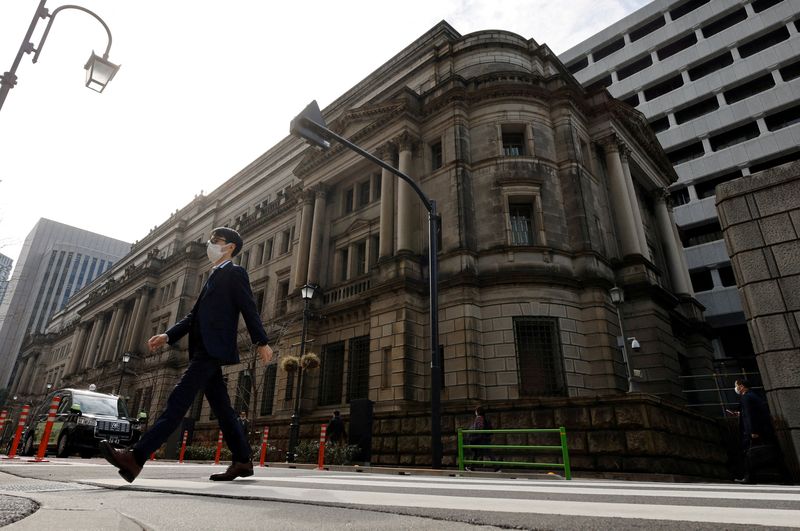By Tetsushi Kajimoto and Leika Kihara
TOKYO (Reuters) - Incoming Bank of Japan (BOJ) Governor Kazuo Ueda will speak in parliament on Friday and next Monday, as the central bank's yield cap comes under renewed attack by markets betting on a near-term interest rate hike.
The remarks by Ueda, an academic and former BOJ board member, will be closely watched by markets for clues on how soon the central bank could end its bond yield control policy.
Long-term interest rates rose on prospects of a policy tweak with the yield on the 10-year bond yield briefly touching 0.505% on Tuesday, breaching the BOJ's 0.5% cap to reach the highest level since Jan. 18.
The market's renewed attack on the BOJ's yield cap may complicate Ueda's task of steering a smooth exit from ultra-low rates, some analysts say. Ueda will take over from incumbent Governor Haruhiko Kuroda when his term ends in April.
The upper house of parliament will hold its confirmation hearing for Ueda, the government's nominee for central bank governor, on Feb. 27, a ruling party lawmaker said on Tuesday.
The hearing will begin at 1:10 p.m. (0410GMT) and last for nearly four hours.
The deputy governor nominees - former banking watchdog head Ryozo Himino and BOJ executive Shinichi Uchida - will testify on the following day, he said.
The upper house testimony will follow one to be held by the lower house on Friday, which will offer financial markets a first glimpse of Ueda's monetary policy stance.
The nominations need the approval of both chambers of the Diet, which are effectively a done deal as the ruling coalition holds solid majorities in both.
Under yield curve control (YCC), the BOJ guides short-term interest rates at -0.1% and the 10-year bond yield around 0% as part of efforts to sustainably achieve its 2% inflation target.
Under pressure from rising global interest rates, the BOJ was forced to raise in December the implicit cap for its 10-year yield target to 0.5% from 0.25% - a move that fuelled market expectations of a near-term tweak to YCC.
(Graphic: The BOJ’s YCC faces a reckoning, https://www.reuters.com/graphics/JAPAN-ECONOMY/BOJ/zjvqjwdaqpx/chart.jpg)
Ryutaro Kono, chief Japan economist at BNP Paribas (OTC:BNPQY), expects the BOJ to raise the yield cap to 0.75% or 1% as early as in March - the last policy meeting to be chaired by Kuroda.
"If the BOJ does nothing in March, the new leadership under Ueda will have to deal with a huge bond sell-off by global investors," something the BOJ likely wants to avoid, he said.
Other analysts, however, are not sure whether the BOJ will make any hasty moves given Japan's fragile economy.
"Some market players expect Kuroda to do something before his term ends in April. But I don't expect an outgoing governor to spur a surprise that could hit companies just as they close their books at fiscal year-end in March," said Yasunari Ueno, chief market economist at Mizuho Securities.
"Ueda also won't rush in exiting ultra-loose policy," as the recent cost-push inflation is unsustainable, he said.

Analysts polled by Reuters expect data due on Friday to show Japan's core consumer inflation hit a fresh 41-year high of 4.2% in January.
But the BOJ expects inflation to slow below 2% later this year as the impact of rising raw material costs fade. Kuroda has said the central bank must maintain ultra-easy policy until the rise in inflation is accompanied by higher wage growth.